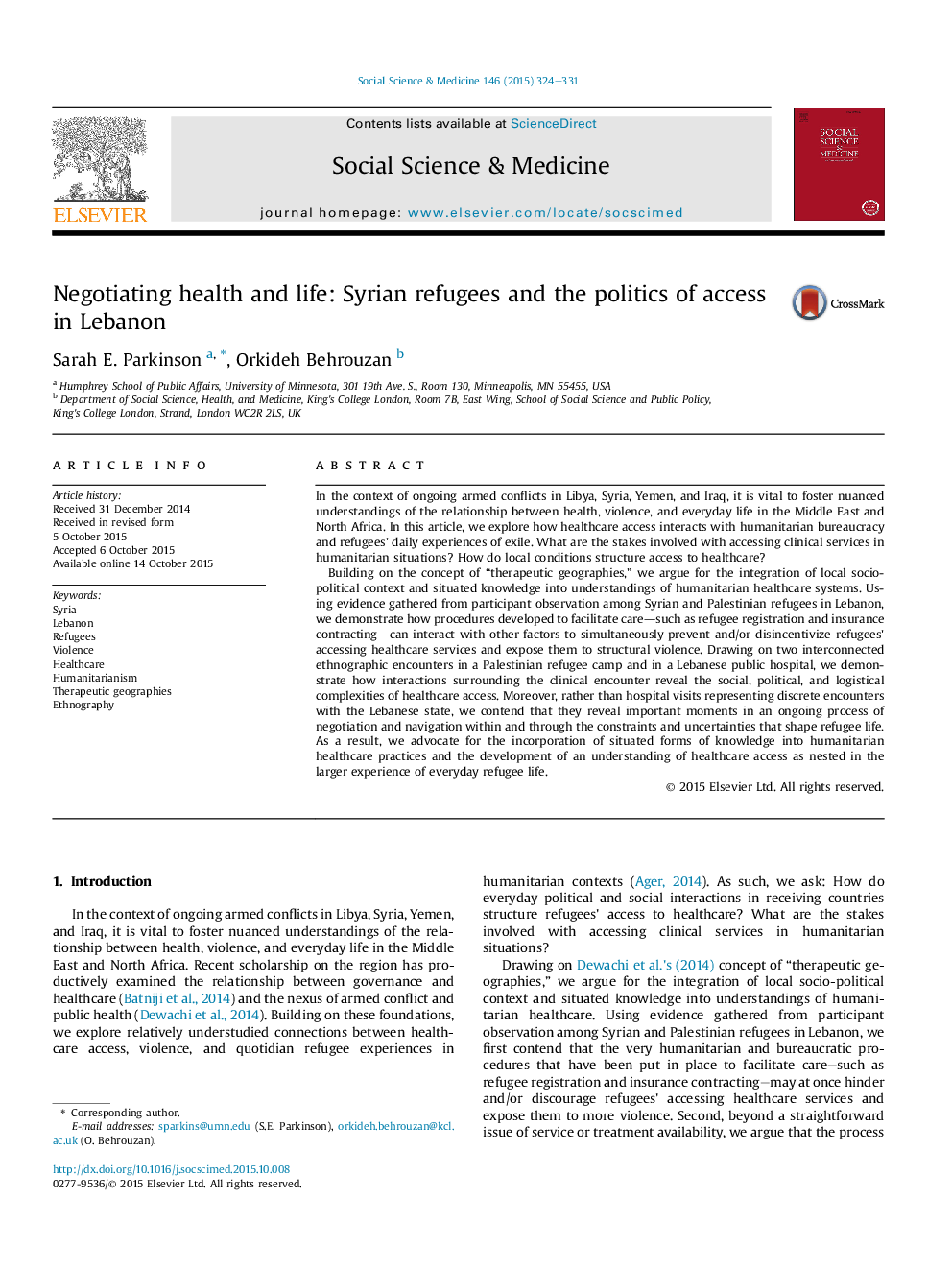| Article ID | Journal | Published Year | Pages | File Type |
|---|---|---|---|---|
| 7331448 | Social Science & Medicine | 2015 | 8 Pages |
Abstract
Building on the concept of “therapeutic geographies,” we argue for the integration of local socio-political context and situated knowledge into understandings of humanitarian healthcare systems. Using evidence gathered from participant observation among Syrian and Palestinian refugees in Lebanon, we demonstrate how procedures developed to facilitate care-such as refugee registration and insurance contracting-can interact with other factors to simultaneously prevent and/or disincentivize refugees' accessing healthcare services and expose them to structural violence. Drawing on two interconnected ethnographic encounters in a Palestinian refugee camp and in a Lebanese public hospital, we demonstrate how interactions surrounding the clinical encounter reveal the social, political, and logistical complexities of healthcare access. Moreover, rather than hospital visits representing discrete encounters with the Lebanese state, we contend that they reveal important moments in an ongoing process of negotiation and navigation within and through the constraints and uncertainties that shape refugee life. As a result, we advocate for the incorporation of situated forms of knowledge into humanitarian healthcare practices and the development of an understanding of healthcare access as nested in the larger experience of everyday refugee life.
Related Topics
Health Sciences
Medicine and Dentistry
Public Health and Health Policy
Authors
Sarah E. Parkinson, Orkideh Behrouzan,
